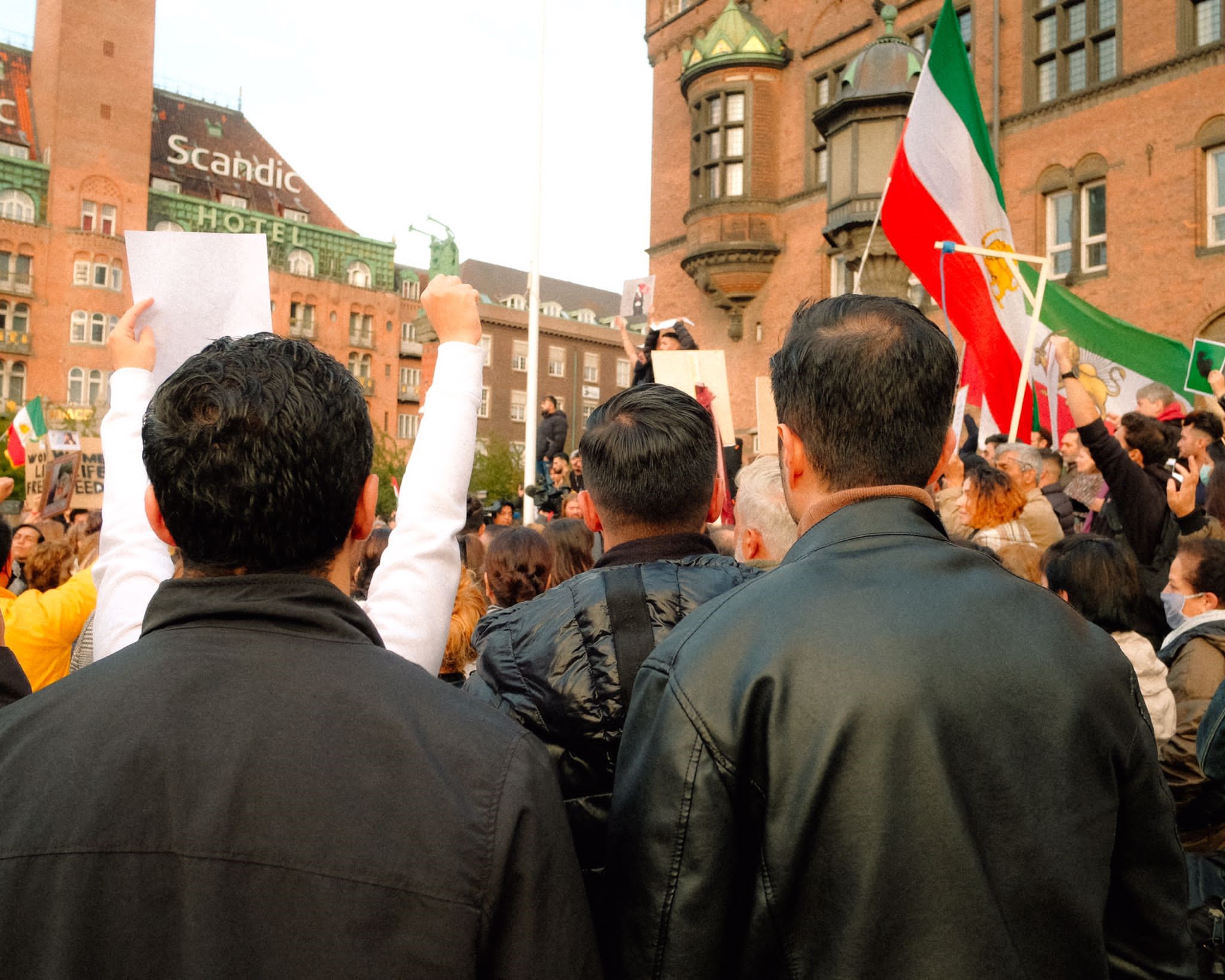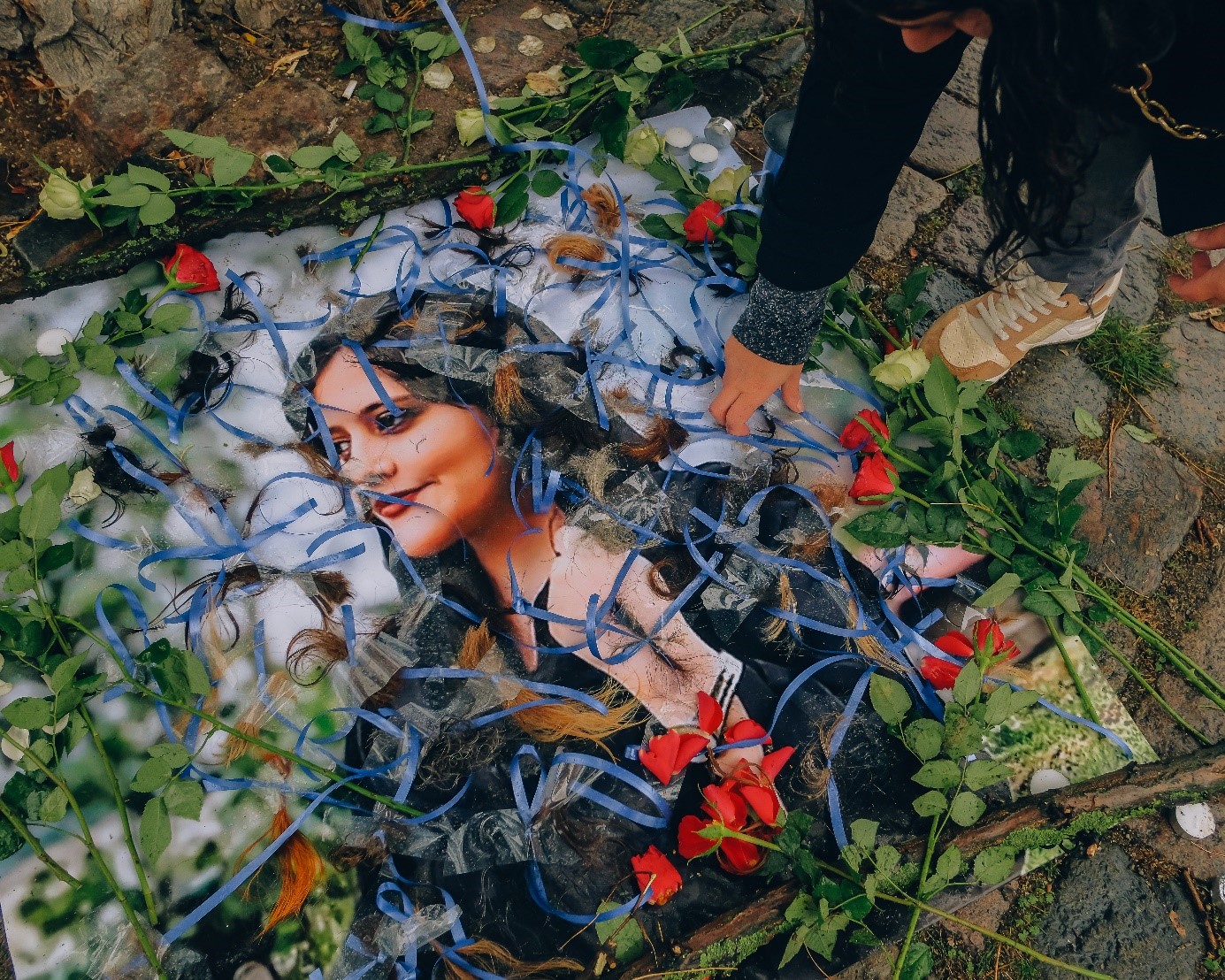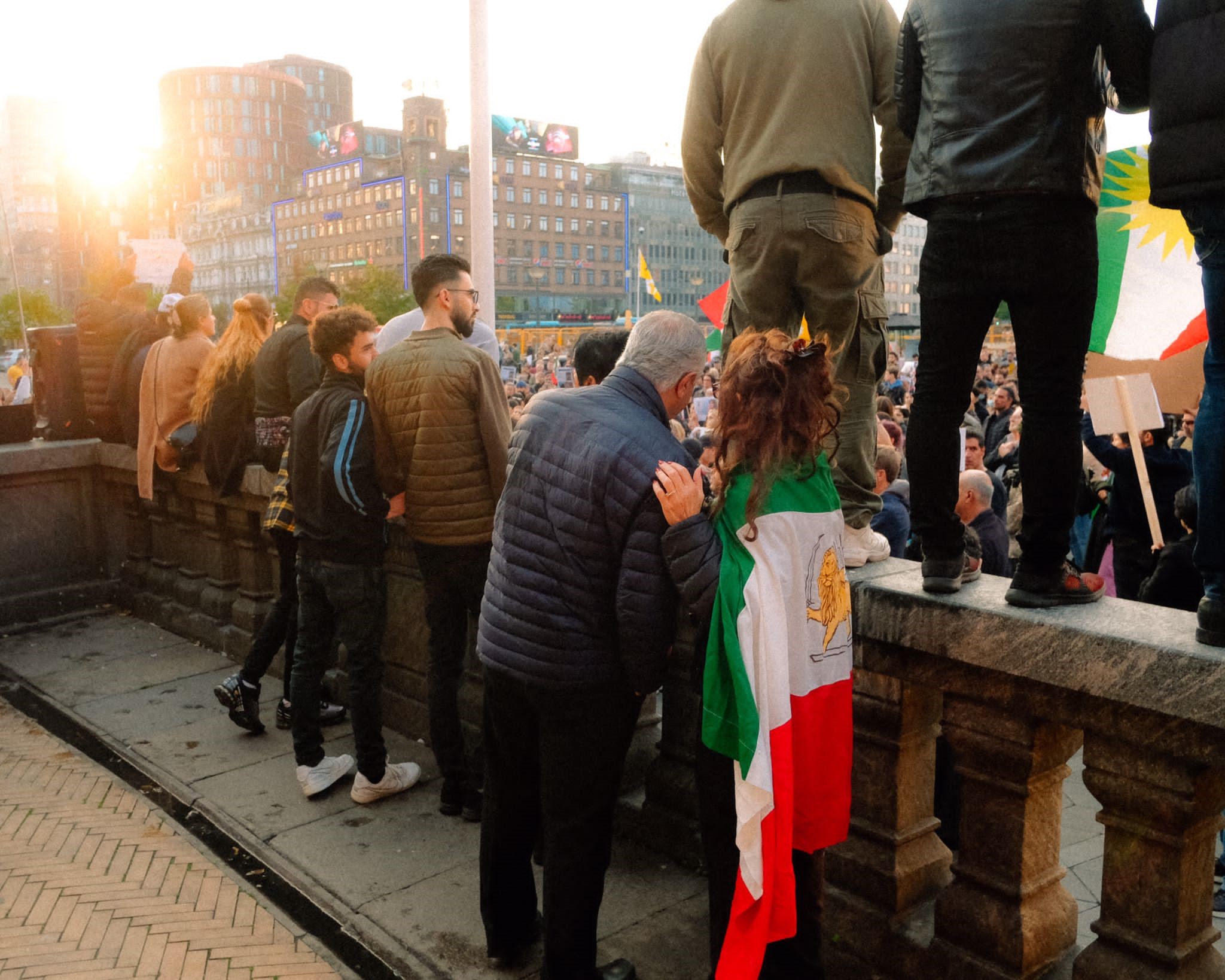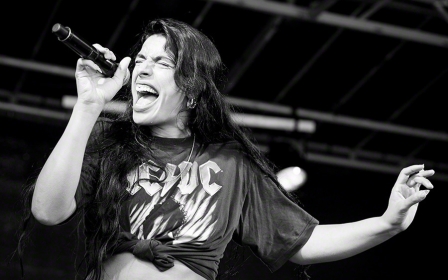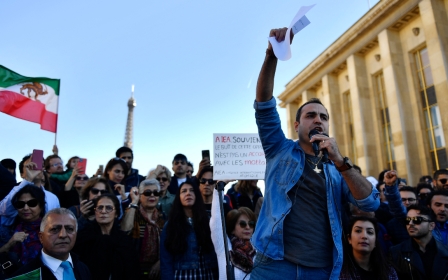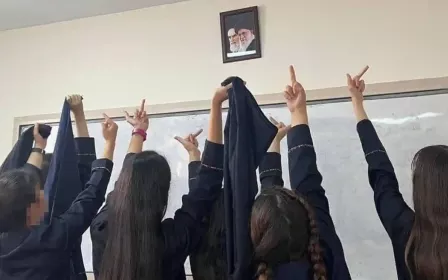Mahsa Amini: Cousin of woman whose death sparked Iran protests speaks out
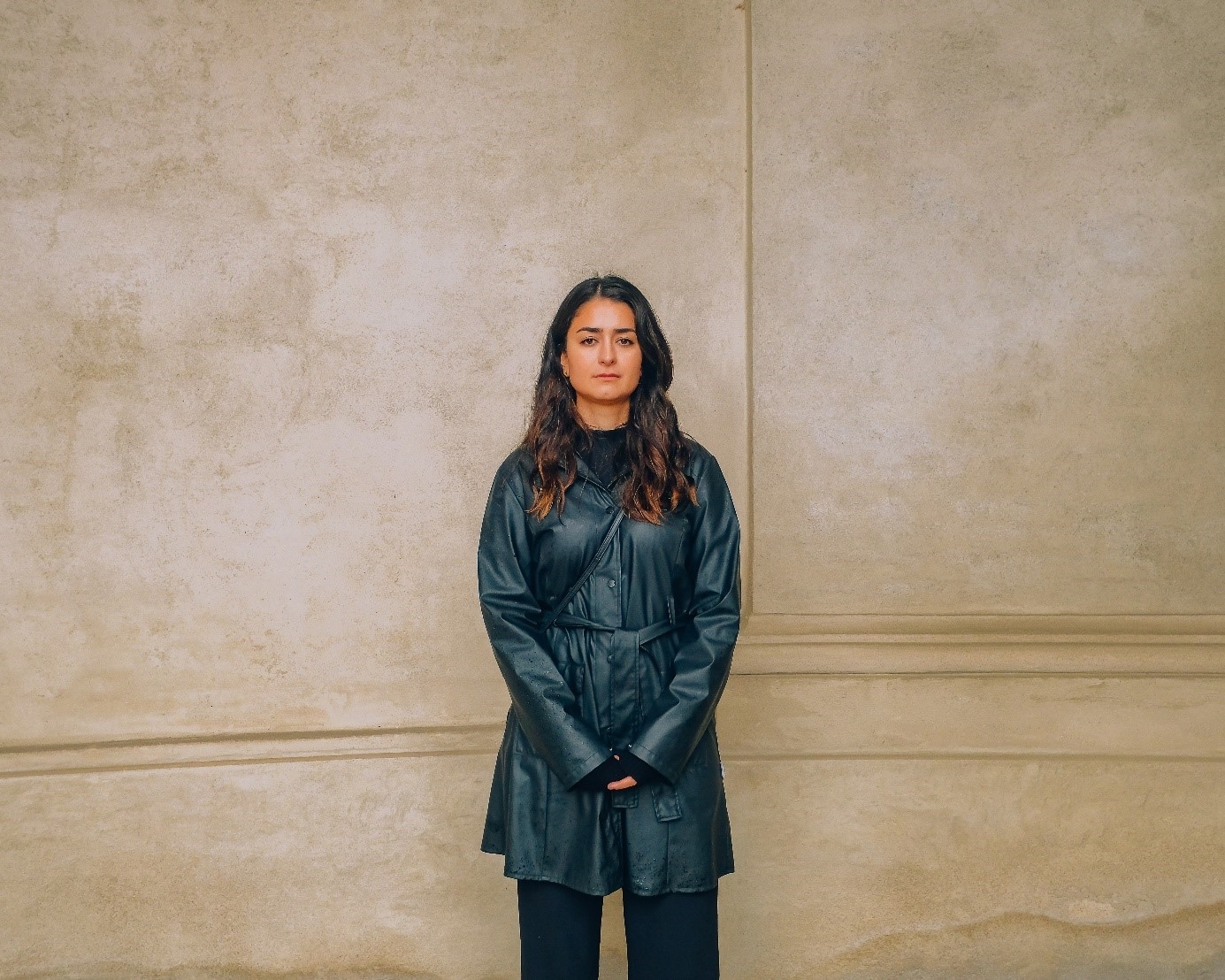
A wave of protests has hit Iran, following the death of 22-year-old Kurdish woman Mahsa Amini after she was detained by the Iranian “morality police” on 16 September while on a visit to her family in Tehran.
Amini, whose Kurdish name is Jina, was originally from the city of Saqqez in the west of Iran, and she has become the face of an uprising that has challenged the authority of the Islamic Republic for the first time in many years.
In Denmark, her cousin Kaziwa Mohammadi is grieving Jina's death.
'It was terrible to hear the sorrow in my mother's voice on the phone. It is also very surreal to see my cousin become the face of an uprising'
- Kaziwa Mohammadi, Mahsa Amini's cousin
“It is important to stress that her name was Jina, but since the Iranian regime does not accept Kurdish names, she had the Iranian name 'Mahsa' that is now used during the protests," she told Middle East Eye while attending a protest in Copenhagen against the Islamic Republic.
Mohammadi does not remember the first few minutes after getting the message that her cousin had been killed. She received a photo from her mother in the family's group chat.
"It was a photo of Jina from the hospital bed. It took a while before I realised that it was her," she said.
She immediately called her mother, who could confirm that it was Jina, who had been taken, beaten, and fallen into a coma.
“I do not remember what I did the first few minutes after getting the horrible message. It was a huge shock. It was terrible to hear the sorrow in my mother's voice on the phone. It is also very surreal to see my cousin become the face of an uprising," she told MEE.
She describes the past few weeks as a blur and finds it hard to not think about Amini and the rest of her family in Iran.
Since receiving the message, Mohammadi has found herself taking to the streets of Copenhagen, not only in memory of her cousin, but also in solidarity with the women of Iran.
“The least I can do is to say out loud that what the regime is doing is wrong, and to protest for my cousin," she explained.
Although Mohammadi grew up in Norway with her parents and two younger siblings, she is now living in Denmark. Her parents fled Iran in the early 1990s. Mohammadi last saw Amini while paying a visit to Iran in 2010 and has since kept in touch with her through social media.
According to statistics, there are around 22,000 Iranians in Denmark and they have joined much of the rest of the diaspora around the world in demanding women's rights in their homeland.
“I think it is both good and hard that something this big came out of Jina's death. It still feels surreal when I attend protests and see people holding posters with Jina's face on it," said Mohammadi.
"That is when I realise that she is dead."
'I have the right to speak'
Several protests have been held in Denmark's capital, Copenhagen, over the past few weeks. A number of demonstrators covered their faces for fear of being photographed and putting their families in Iran in danger.
Firoozeh Bazrafkhan is not willing to let fear of the government stop her from protesting openly in the streets and online. She attended a protest for a "Free Iran" in front of the town hall square in Copenhagen last week.
“If I do not speak up, I am hiding parts of my identity. I have the right to speak, even though some people might like it or not," she told MEE.
Bazrafkhan fled with her parents from Iran to Denmark when she was five. She has dedicated her career to art, mainly focusing on feminism and criticising the Islamic Republic.
“Everything I do is feminist. I have gotten a lot of threats for my art, but I am not afraid, and I do not intend to stop. I come from the city of Shiraz, and I think my power to fight is within my blood. We are strong people."
Most of those taking part in the anti-government protests are young people, including - for the first time since the 1979 revolution - school students.
Bazrafkhan said the Iranian people did not need words, they needed action.
“The Iranian people want democracy, not a dictatorship that controls what people can and cannot do. We must support them, not only with words, but also by demanding that the politicians in democratic countries do something," she said.
Bazrafkhan underlines why it is especially important to support the young people of Iran.
“They want to live a normal life without having authorities telling them what to wear, and the basic human rights that we take for granted in Denmark. They have nothing to lose; the regime has already taken everything from them - their identity, and their future."
Middle East Eye propose une couverture et une analyse indépendantes et incomparables du Moyen-Orient, de l’Afrique du Nord et d’autres régions du monde. Pour en savoir plus sur la reprise de ce contenu et les frais qui s’appliquent, veuillez remplir ce formulaire [en anglais]. Pour en savoir plus sur MEE, cliquez ici [en anglais].


